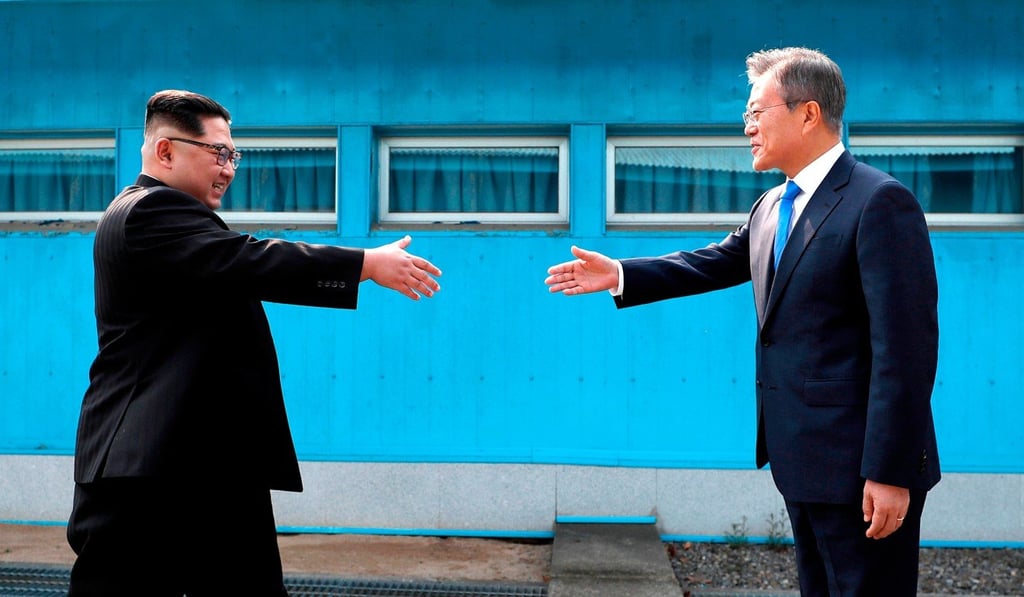Advertisement
Two North Koreans allegedly murdered 16 men and fled to the South. Moon Jae-in is getting flak for sending them back
- South Korea has previously granted asylum to all defectors, but returned two men accused of a murderous mutiny
- Critics say the South Korean president is pursuing rapprochement at the cost of human rights
Reading Time:3 minutes
Why you can trust SCMP

Since the division of the Korean peninsula after World War Two, South Korea has offered safe haven to more than 30,000 of their brethren from the impoverished, authoritarian North. But when two North Korean men sought asylum after drifting across the maritime border in a small fishing boat this month, Seoul made the unprecedented decision to turn them away.
South Korean authorities repatriated the men, both in their 20s, through a border village on Thursday after concluding they had murdered 16 of their crew along with a third accomplice in a botched mutiny against their captain. Although defectors are normally granted automatic citizenship and economic assistance in the South, officials said the men did not qualify for asylum under South Korean or international law because they had “committed serious non-political crimes” and posed a risk to South Korean society.
The repatriations – which were arranged with Pyongyang just three days after the men were apprehended – have incensed defector and human rights organisations, who accuse the administration of President Moon Jae-in of denying the accused men due process and putting them at risk of torture and execution by the regime of third-generation dictator Kim Jong-un.
Advertisement

The case has also reignited criticism that Moon, a human rights lawyer-turned-liberal politician, has pursued rapprochement with the North, including three one-on-one summits with the North Korean leader, at the cost of sidelining human rights concerns and opposition towards the regime. Under his administration, defectors and other activists have complained of being restricted from carrying out activism such as flying balloons carrying anti-regime leaflets across the border.
Advertisement
“When two defectors come to Korea, they should be regarded as South Korean people and judged according to our law,” said Kim Jong-ha, a professor at Hannam University in Daejeon, South Korea. “Why were they expelled so quickly?”
Advertisement
Select Voice
Select Speed
1.00x